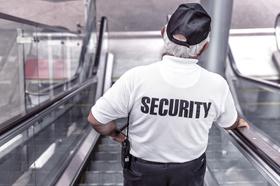Beebe High School is a comprehensive public high school for students in grades nine through twelve located in Beebe, Arkansas, United States. It is one of eight public high schools in White County, Arkansas and is the only high school managed by the Beebe School District.
Serving 1,055 students in grades 9-12, Beebe High School ranks in the top 50% of all schools in Arkansas for overall test scores (math proficiency is bottom 50%, and reading proficiency is bottom 50%).
The percentage of students achieving proficiency in math is 32% (which is lower than the Arkansas state average of 39%). The percentage of students achieving proficiency in reading/language arts is 42% (which is higher than the Arkansas state average of 40%).
The student-teacher ratio of 8:1 is lower than the Arkansas state level of 13:1.
Minority enrollment is 18% of the student body (majority Hispanic), which is lower than the Arkansas state average of 42% (majority Black).
Quick Facts (2025-26)
- Grades: 9-12
- Enrollment: 1,055 students
- Student-Teacher Ratio: 8:1
- Minority Enrollment: 18%
- Graduation Rate: 92% (Top 20% in AR)
- Overall Testing Rank: Top 50%
- Math Proficiency: 32% (Btm 50%)
- Reading Proficiency: 42% (Top 50%)
- Science Proficiency: 33% (Btm 50%)
- Source: National Center for Education Statistics (NCES), AR Dept. of Education
Top Rankings
Beebe High School ranks among the top 20% of public schools in Arkansas for:
Category
Attribute
Graduation Rate
Student Attention
School Overview
Beebe High School's student population of 1,055 students has grown by 9% over five school years.
The teacher population of 128 teachers has grown by 21% over five school years.
Grades Offered
Grades 9-12
(Supplemental Virtual)
(Supplemental Virtual)
Total Students
1,055 students
Gender %
Total Classroom Teachers
128 teachers
Year Founded
1905
School Calendar
School Rankings
Beebe High School ranks within the top 50% of all 989 schools in Arkansas (based off of combined math and reading proficiency testing data).
The diversity score of Beebe High School is 0.32, which is less than the diversity score at state average of 0.61. The school's diversity has stayed relatively flat over five school years.
Overall Testing Rank
#476 out of 989 schools
(Top 50%)
(Top 50%)
Math Test Scores (% Proficient)
32%
39%
Reading/Language Arts Test Scores (% Proficient)
42%
40%
Science Test Scores (% Proficient)
33%
36%
Student-Teacher Ratio
8:1
13:1
American Indian
n/a
n/a
Asian
1%
2%
Hispanic
9%
15%
Black
4%
19%
White
82%
58%
Hawaiian
n/a
1%
Two or more races
4%
5%
All Ethnic Groups
Graduation Rate
92%
88%
Participates in the National School Lunch Program (NSLP)
Yes
Eligible for Free Lunch
31%
56%
Eligible for Reduced Lunch
15%
10%
School Statewide Testing
School District Name
Source: National Center for Education Statistics (NCES), AR Dept. of Education
School Notes
- School Mascot: The Badger
Profile last updated: 02/09/2025
Frequently Asked Questions
What is Beebe High School's ranking?
Beebe High School is ranked #476 out of 989 schools, which ranks it among the top 50% of public schools in Arkansas.
What schools are Beebe High School often compared to?
Beebe High Schoolis often viewed alongside schools like Searcy High School by visitors of our site.
What percent of students have achieved state testing proficiency in math and reading?
32% of students have achieved math proficiency (compared to the 39% AR state average), while 42% of students have achieved reading proficiency (compared to the 40% AR state average).
What is the graduation rate of Beebe High School?
The graduation rate of Beebe High School is 92%, which is higher than the Arkansas state average of 88%.
How many students attend Beebe High School?
1,055 students attend Beebe High School.
What is the racial composition of the student body?
82% of Beebe High School students are White, 9% of students are Hispanic, 4% of students are Black, 4% of students are Two or more races, and 1% of students are Asian.
What is the student-teacher ratio of Beebe High School?
Beebe High School has a student ration of 8:1, which is lower than the Arkansas state average of 13:1.
What grades does Beebe High School offer ?
Beebe High School offers enrollment in grades 9-12 (Supplemental Virtual).
What school district is Beebe High School part of?
Beebe High School is part of Beebe School District.
School Reviews
2 10/10/2025
They are not very welcoming to new students
1 10/10/2025
Beebe graduated 1 of my daughters and she can not spell. Beebe graduated another child of mine, and he can not read. What the heck is going on? The ratio is 24 kids to 1 teacher, they DO NOT have the time nor the ambition to teach our children correctly and with patients. Also, they allow the African Americans all the freedom to run the school but if your white you do not have a chance to learn your heritage, they will expel you call you racist and send you away like your nothing. They are snooty and snobby, and half of the facility should not be teaching. That goes for the high school principals and secretaries that do not do their job and gossip about other women.
Review Beebe High School. Reviews should be a few sentences in length. Please include any comments on:
- Quality of academic programs, teachers, and facilities
- Availability of music, art, sports and other extracurricular activities
Recent Articles

How Public Schools Support Students on Free / Reduced-Lunch Programs
Explore how U.S. public schools support students eligible for free or reduced-price lunch through nutrition, academic, and wraparound services in 2025.

Hidden Costs of Public Schools: Fees, Supplies & Extras
Explore the hidden costs in public schools鈥攆ees, supplies, extracurriculars鈥攁nd how parents can plan for them in 2025.

Public School Funding 2025: What Families Should Know
Essential insights on public school funding in 2025鈥攈ow it works, what鈥檚 changing, and what families should know to stay ahead.





